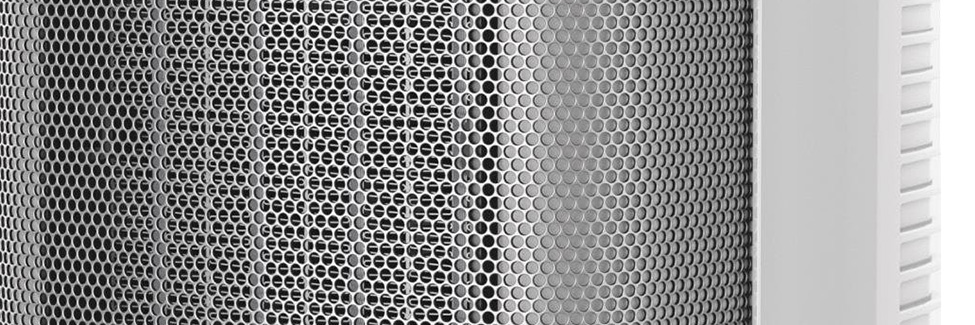
Top Space Heater Safety Tips
With winter fast approaching, it’s time to start looking for ways to stay warm. Space heaters can be a very effective way to enhance the heat in your home or office - either in rooms without adequate heating or in areas where the existing heat may not quite be warm enough. According to the National Fire Protection Association, space heaters account for 43% percent home heating fires. To make sure this doesn’t happen to you, be sure to take note of the following safety tips before plugging in your space heater this winter:
1. Purchase a space heater with the necessary safeguards
Modern space heaters are much less dangerous than old ones because they include several safety features that prevent them from starting a fire or causing other damage. Many newer space heaters have features that allow them to automatically shut off when they overheat or the oxygen levels in the room dip below a certain amount. Other space heaters have sensors that can detect when the unit has been tipped over or if someone or something comes in contact with it. Be sure to look for evidence of a safety certification when you buy your next space heater - certification by Underwriters Laboratories (UL), the Canadian Standards Association (CSA) and/or the Intertek Group (ETL) indicate that the space heater you’re shopping for meets all the latest safety standards.
2. Do not leave the space heater unattended
Space heaters can warm up a room quickly and efficiently. If there is nobody in the room, there is no reason to leave the space heater on. Turn it off to reduce the risk of damage while you’re not around.
And consider how much heat is really necessary for your space. Many space heaters share BTU (British Thermal Unit) ratings, which let you know its heating capacity. If you’re curious about the optimal BTUs for your own indoor space, use our heat BTU calculator.
3. Keep a minimum three-foot buffer from any other item
Because space heaters generate a high amount of concentrated heat, it’s imperative to keep them away from anything that could possibly be flammable or overheat. This can include fabric upholstery, electronic devices and nearly anything else found in a typical household. Keep a minimum three-foot distance between the heater and everything else - but check the owner’s manual for your particular space heater to see if a greater distance is recommended.
4. Keep the space heater away from children
Children and space heaters do not mix. The risk of injury to a child around a space heater is far too high to justify their use. The child may accidentally touch the very hot space heater, could trip over the cord risking a tip-over of the space heater or may simply turn it on and leave it unattended without the knowledge of an adult. If you absolutely must use a space heater around a child (or curious pet), make sure that the heater is equipped with all the latest safety features and that the child is aware of the danger of going near the space heater.
5. Exercise cord safety
To help reduce the risk of the space heater tipping over, keep it as close to its power source as possible. Do not use extension cords with space heaters and always make sure that the cord is over rugs and carpets so that it is visible to people walking around within the room. Ensure that the space heater’s cord is in good condition and immediately replace if the cord becomes worn or frayed.
6. Only use electric space heaters indoors
Space heaters should only be used in well-ventilated rooms and when used inside should always be powered by electricity. Gas and oil space heaters do exist, but these are much more dangerous to use indoors and their use can greatly increase the risk of fire or injury. To ensure that you have warm, fresh, safe air only use electric-powered space heaters in rooms with adequate ventilation.
7. Ensure your smoke detector and carbon monoxide detectors are working properly
In the event that something does go wrong with the space heater and you have left it unattended, ensure that your house or building has the proper detectors in place to alert you of an emergency. Your smoke detector or carbon monoxide detector might save your life if your space heater causes a fire. Always change the batteries in these units when they are due to be replaced and test your smoke detector at least once a month.
By following these safety tips, you should be able to safely and comfortably use energy efficient space heaters. Always check the owner’s manual for your particular model of space heater to ensure that you’re adhering to their recommended safety practices.
Still have questions? Ask an HVAC expert directly via chat or phone.
Published on 2018-09-01 by Ben Travis
Last updated on 2020-10-05


